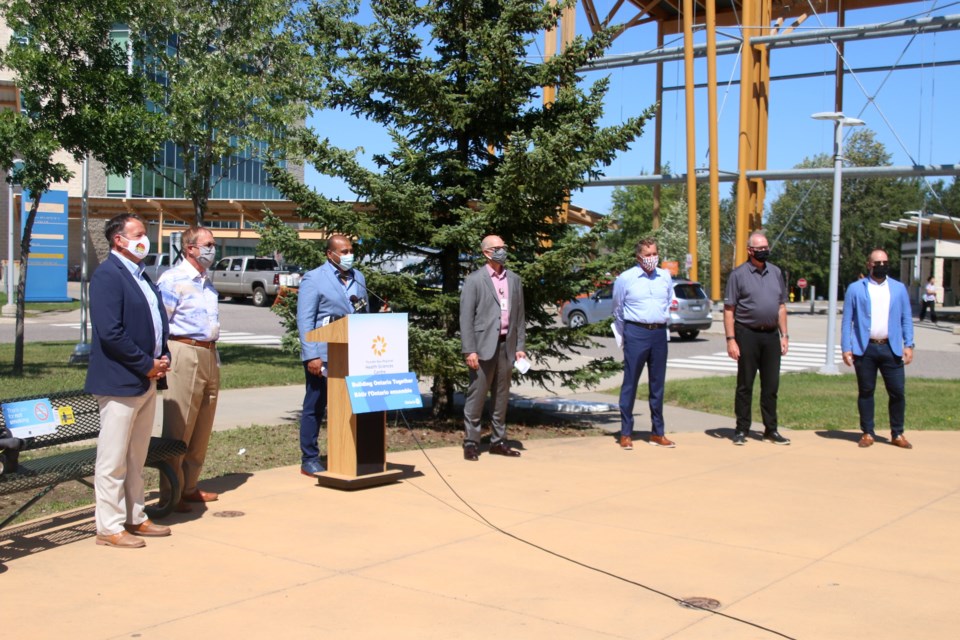THUNDER BAY - Vascular care and the eventual implementation of cardiovascular surgery in Northwestern Ontario continue to move forward with the help of additional funding from the provincial government.
On Tuesday, Minister of Energy, Northern Development and Mines and Minister of Indigenous Affairs Greg Rickford was in Thunder Bay to announce $690,000 in funding to allow cardiovascular patients to receive care closer to home.
“It’s a couple hour flight to Toronto, it’s a 16 hour drive. We have more than 25 isolated and remote communities with no road access,” Rickford said.
“We are reminded quite frequently when Ornge flies a critically ill patient in from a landing pad in Kenora or other Indigenous communities around the province how critical two things [are]: one, the time and effectiveness of getting a patient to the Thunder Bay Regional Health Sciences Centre, and the ability of them to deliver advance services so they don’t have to take a flight out to another great city.”
Earlier this year, the province announced $935 million for hospitals in the province to deal with the COVID-19 pandemic and the effects it will have down the road.
“Now hospitals are reopening and seeing a surge, so it makes sense we provide them with a kind of surge funding,” Rickford said.
“In addition to the surge funding, we are celebrating the cardiovascular centre project. This is something a lot of very talented people have been working on for a long time. The hallmark of this program is they are going to be able to offer advanced cardiac surgery closer to home across Northwestern Ontario.”
According to Jean Bartkowiak, president and CEO of the TBRHSC and of the Thunder Bay Regional Health Research Institute, the funding from the province will allow the hospital to move closer to the end goal of the cardiovascular project.
“We’ve already started the project, even at stage zero,” he said. “We already have vascular surgery, which was part and parcel of the whole project. We started with vascular and now we are moving into the heart of the project.”
The $690,000 will allow the hospital to move the project forward, which has been in development since 2014 and is somewhat behind schedule.
Before full cardiovascular surgery can be available in Thunder Bay, two operating suites will need to be refurbished, more beds will need to be added, the ICU will need to be improved to care for patients after surgery, and additional staff will need to be hired.
“We also have to hire and train professionals that will support that project,” Barkowiak said. “Three heart surgeons, 60 to 65 nurses, rehab staff. There are a bunch of people involved that we need to start hiring.”
Northern Ontario has some of the highest rates of cardiovascular disease, and every year more than 300 patients are sent from the Northwest to the Peter Munk Cardiac Centre in Toronto for care.
“A full cardiovascular surgery program at our Hospital will allow patients in Northwestern Ontario to be provided with the same quality cardiovascular care as they would in Southern Ontario, but without the added stress and expense of having to travel,” Bartkowiak said.
“We think about Thunder Bay and Northwestern Ontario leading the world in a couple of key areas,” Rickford added. “The incidence of certain disease processes are higher here. It’s time we start investing in technology locally to address those challenges.”
“This is a smart investment for not just Thunder Bay, but all of Northwestern Ontario.”
Bartkowiak expects the first cardiovascular surgery to be held in Thunder Bay in 2022 or 2023.
